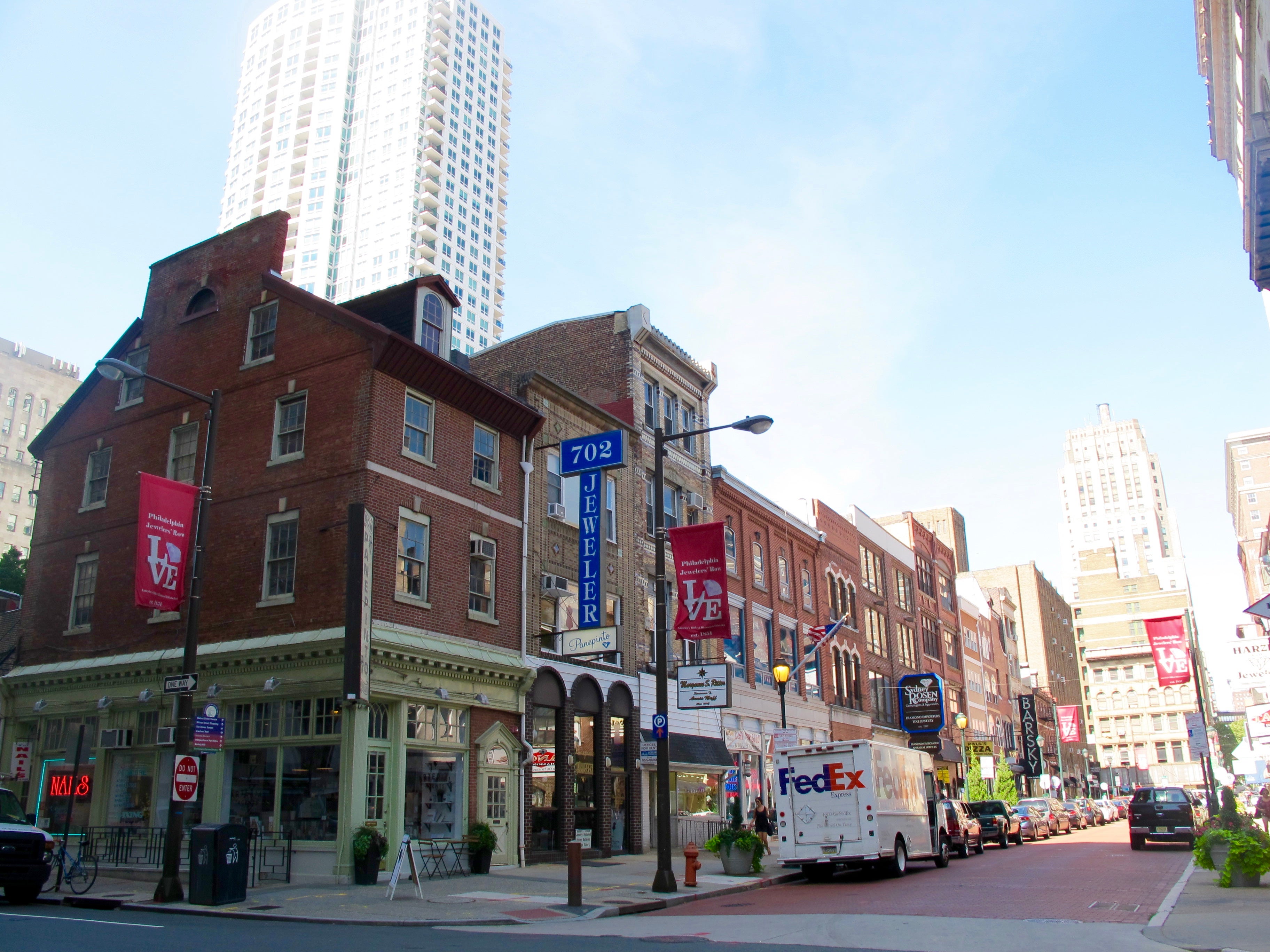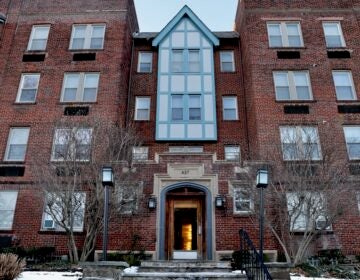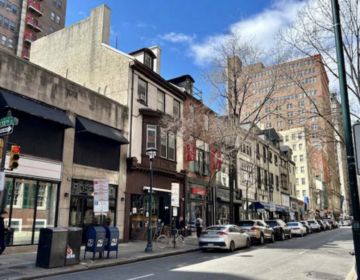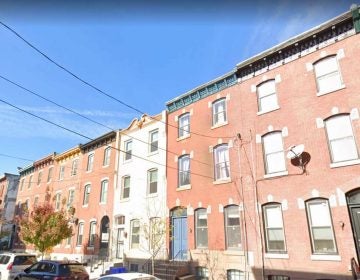Historical Commission punts again on Jewelers Row

Once again, Philadelphia’s Historical Commission decided to punt on the contentious Jewelers’ Row case. On Friday, the commission tabled their decision on the historic significance of 704 and 706-08 Sansom Street for an indeterminate period of time and will only take it up again when the larger legal questions around the project have been settled.
The meeting proved controversial and the motion to table passed only after an hour of heated debate and a split 8-3 vote.
The question hinged on whether the Historical Commission should stick with its past practice, which would mean deferring consideration while there are contested permits in play, or if they should fulfill their basic duty and consider the historical merits of the properties.
Despite a sustained salvo of objections from preservation activists, the Commission decided on the former course of action.
A vote to add the buildings to the local historic register would not necessarily stop the Toll Brothers project. The historical nominations were filed after the developer applied for demolition permits, and that timing matters.
Despite the commission’s inability to actually protect the buildings, no matter how they voted today, chairman Robert Thomas seemed to strongly consider the possibility of hearing the nominations. He believes the buildings to be historically significant and Thomas said that if they were added to the register now they would at least be protected if the Toll Brothers’ plans fell through.
Toll Brothers’ zoning lawyer, Carl Primavera, nipped that line of thinking in the bud.
“You will create a huge misunderstanding within the public,” said Primavera. “You will damage my client in the courts, in the court of public opinion…. The commission should do nothing. The Hippocratic Oath: Do no harm.”
Primavera claimed that it would be unconstitutional to have what amounted to a retrospective impediment to Toll Brothers’ rights. The commission shouldn’t put itself in that position just to send a message, the lawyer argued.
“I know you all have deep feelings—passion—that’s why you are on this commission,” said Primavera. “But the rule of law has to restrain you from your otherwise personal desire to hold on to every brick and stick. The investment community throughout the United States is looking at Philadelphia. They want to see if you play by the rules.”
Paul Steinke of the Preservation Alliance countered that the commission’s charge is not to pay attention to “the legal circus,” but to determine whether or not the buildings are historically significant. He affirmed chairman Thomas’ fear of fruitless demolition, noting that the Boyd Theater suffered demolition for the sake of a residential high rise that never materialized—leaving a vacant lot to mar the streetscape.
Steinke forcefully argued for at least a façadectomy for the four buildings facing Sansom Street, leaving the existing frontages on the face of the new building. Toll Brothers has, however, repeatedly asserted that it has no interest in preserving the façades.
“If you take action today and approve these nominations, you will be sending a signal as the steward of Philadelphia’s historic resources that you agree that the historic Jewelers Row streetscape is important,” said Steinke. “Whether or not your decision winds up having the force of law doesn’t really matter today. What does matter is the signal you can send very clearly that preserving these facades is important and can be done by this developer.”
At this point, the meeting again descended into debates over how, exactly, they should proceed.
The CDC representative on the commission, Anuj Gupta, said that he believed they did have the jurisdiction to rule on the nominations. The ordinance wasn’t specific on a case of this nature, but he said that if there is a nomination then they should hear it. By putting it on the agenda in the first place, the commission admitted its jurisdiction.
But longtime commissioner John Mattioni argued that the norms of the commission should dictate what the board did. He agreed with Primavera’s argument that a ruling would simply muddy the waters.
“Continuing this discussion over and over again reinforces the false impression that we do have authority to make a difference in this particular type of circumstance,” said Mattioni. “We don’t. No matter what we do it’s not going to make a difference to the outcome.”
A motion was then introduced to table the nomination indefinitely, to ensure consistency with the November decision and other cases. But Thomas suggested an alteration that would only table it until such time as the demolition permits were resolved.
After the motion was introduced, the commission withheld the vote until a veritable army of preservation activists could testify. All of them urged the commission to not table the question. Oscar Beisert described the project as “disgusting.” Aaron Wunsch of the University of Pennsylvania pointed out that the zoning process for the new 29-story tower was still very much up in the air and that, in any case, the commission needed to act.
“I’m not confused at all,” said Kathy Dowdell, a longtime preservation activist. “You guys have the simplest task out of this whole process. The question is: do these buildings meet the criteria for designation or not?”
In the end, the commission voted to preserve their norms and not rule on the nomination while the demolition permits are still in play. The only dissenting votes were Gupta, Dan McCoubrey, and Emily Copperman, chair of the Historic Designation Committee.
Steinke then attempted a fresh gambit. On Thursday, the Preservation Alliance wrote to the commission with a claim that the property on 128 South 7th Street—which is one of the five parcels Toll Brothers is consolidating for the project—is in fact historically protected. The small two story corner row house at 700 Sansom is on the city’s historic register and the lots behind it—124, 126, and 128 7th Street—were covered in the original parcel.
Although the property was since subdivided, the Preservation Alliance argues that historic protections cannot be subdivided away.
The city is not sympathetic to this view.
“It is the City’s position that the Philadelphia Historical Commission has not designated the properties at 124, 126, and 128 S. 7th Street as historic,” wrote Historical Commission executive director Jon Farnham in an email. “They are not listed on the Philadelphia Register of Historic Places.”
Steinke’s argument wasn’t heard by the larger Historical Commission either, despite his persistent attempts to speak at the end of the meeting. The Preservation Alliance will need to try to advance the argument at the next meeting.
WHYY is your source for fact-based, in-depth journalism and information. As a nonprofit organization, we rely on financial support from readers like you. Please give today.







